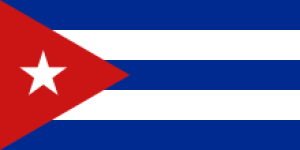Irreconcilable Differences: The 2020 Elections Prove Again The U.S. As Outlier
No Comments yetThe most consequential election in modern U.S. history won’t produce a winner for at least a few more days. And then, the result may be contested in the Supreme Court, with unforeseen consequences for the future of democratic order.
However, while much of the media and the public are consumed with scenarios as to how Biden, or Trump, can reach the magic number of 270 electoral votes, there are some highly disturbing trends and facts about the 2020 election that need to be analyzed if progressives in the U.S. can hope to advance a successful strategy in the years ahead.
First, the polls were wrong again. A blue wave did not materialize in spite of the highest voter turnout in a century and the huge demographic changes taking place all across the United States.
Second, Biden failed to perform as expected in spite of the country being in the midst of a catastrophic pandemic, with a criminally negligent president in charge who has misled the public about Coronavirus from day one and has intentionally spread dangerous information about it.
Third, Trump did much better than expected in spite of being a charlatan, the sort of a leader who says and does such outrageous and highly dangerous things that it is simply unimaginable that citizens in other advanced democracies would have tolerated him in their midst, let alone support with a feverous passion as so many Americans do.
The 2020 U.S. elections have revealed as strongly as possible that the country remains highly polarized, marked by irreconcilable differences between red and blue states. In fact, the U.S. is probably more divided today between red and blue than it was during the 1860s, and much of the credit for this accomplishment is due to the brilliant skills of the con artist occupying the White House for the last four years. Trump has exploited the anxieties, frustrations, and fears of white America, with its toxic ideological notion of racial superiority, in a manner that would have made Joseph Goebbels feel like an amateur.
Racism has always been around. But it is more alive and kicking in today’s USA than any other time since the 1950s or 1960s. This is why Trump’s neo-fascist political posturing is found to be so appealing among such huge segments of 21 st century Americans. Democracy, for Trump and many of his supporters, is an unnecessary luxury if it would mean building a society where whites are the minority. In fact, in a survey cited in Larry Bartels’s research article “Ethnic antagonism erodes Republicans’ commitment to democracy”, “most Republicans…agreed that ‘”the traditional American way of life is disappearing so fast that we may have to use force to save it.”’ https://www.pnas.org/content/117/37/22752
This is why there was a record turnout in the 2020 election: this was an election about white Americans, as Umair Haque, Director of the Havas Media Lab, artfully argued a few days ago in his essay “Is White America Really Ready to Reject Trump’s Fascism?” https://eand.co/is-white-america-really-ready-to-reject-trumps-fascism-cf88d6f9b48d
To be sure, the U.S. remains an outlier among highly advanced societies on many issues, because racism is the driving ideological force. The U.S. is the only country in the advanced industrialized world without a universal health care system, but with a warfare but no welfare state. https://www.salon.com/2020/08/08/as-the-pandemic-has-made-clear-america-has-no-welfare-state–but-we-sure-have-a-warfare-state/
The U.S.is alone among western countries with its continued use of the death penalty (where racial disparities continue even though the death penalty usage has declined), it has not ratified the UN Convention on the Rights of the Child, and has ratified fewer key human rights treaties than all other countries in the G20 group. Additionally, it never ratified the Equal Rights Amendment proposed in 1972, and it ranks 75th globally in women’s representation in government. https://www.cnbc.com/2019/03/04/the-us-ranks-75th-in-womens-representation-in-government.html
Indeed, white America is very different from the rest of the advanced world, as Haque points out in “Is White America Really Ready to Reject Trump’s Fascism?, in profoundly striking ways: “Voters in Europe and Canada — white majorities there — can be relied upon to act with some modicum of decency and humanity and common sense. They back, over and over again, what the world now considers modern social contracts that make up functioning, sophisticated societies — healthcare, retirement, education, childcare, and so on, for all, not just themselves. It would be a massive, massive shock if voters anywhere else in the West began to act like America’s white majority — they are so far off the scale of conservatism, in formal terms, that it might as well not exist.”
In sum, what the 2020 elections demonstrate, regardless of who wins the election, is that Trumpism will remain the dominant ideological and political movement in the third decade of the 21 st century in the United States. With or without Trump in the White House, white America will surely remain vigilant in its attempt to “safeguard America’s traditional values” and, in that context, progressive forces will have their hands full.
In the light of this, the creation of a “Popular Front,” a coalition of all democratic forces of the sort that took place in Europe in the mid-1930s to combat the rise of fascism, should be embraced as possibly the only coherent strategy to roll back Trumpism. But in 21 st century USA, this would mean a commitment first and foremost to the norms and values of an inclusive democracy within the context of class-and environmental politics.
As such, “identity politics,” which has gone from inclusion to division and has led to political tribalism in U.S. society, needs to be reassessed in a manner where its positive attributes are incorporated into a broader political agenda. But this is a story for another time.
—
C.J. Polychroniou is a political economist/political scientist who has taught and worked in universities and research centers in Europe and the United States. His main research interests are in European economic integration, globalization, the political economy of the United States and the deconstruction of neoliberalism’s politico-economic project. He is a regular contributor to Truthout as well as a member of Truthout’s Public Intellectual Project. He has published several books and his articles have appeared in a variety of journals, magazines, newspapers and popular news websites. Many of his publications have been translated into several foreign languages, including Croatian, French, Greek, Italian, Portuguese, Spanish and Turkish. He is the author of Optimism Over Despair: Noam Chomsky On Capitalism, Empire, and Social Change, an anthology of interviews with Chomsky originally published at Truthoutand collected by Haymarket Books.
You May Also Like
Comments
Leave a Reply








